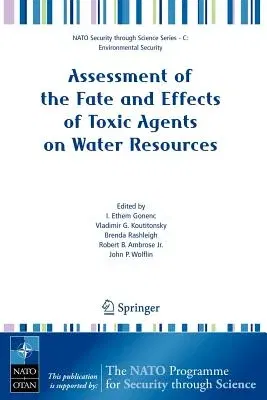Assessment of the Fate and Effects of Toxic Agents on Water Resources (2007)Paperback - 2007, 8 February 2007

Qty
1
Turbo
Ships in 2 - 3 days
In Stock
Free Delivery
Cash on Delivery
15 Days
Free Returns
Secure Checkout
Part of Series
NATO Security Through Science Series C:
Part of Series
NATO Security Through Science Series / NATO Security Through
Part of Series
NATO Security Through Science
Part of Series
NATO Science for Peace and Security Series / NATO Science fo
Part of Series
NATO Science for Peace and Security Series C: Environmental Security (Paperback)
Part of Series
NATO Science for Peace and Security Series C: Environmental
Part of Series
NATO Security for Science Series C: Environmental Security
Part of Series
NATO Security Through Science Series C: Environmental Securi
Print Length
390 pages
Language
English
Publisher
Springer
Date Published
8 Feb 2007
ISBN-10
1402055277
ISBN-13
9781402055270
Description
Product Details
Book Edition:
2007
Book Format:
Paperback
Country of Origin:
NL
Date Published:
8 February 2007
Dimensions:
23.39 x
15.6 x
2.24 cm
ISBN-10:
1402055277
ISBN-13:
9781402055270
Language:
English
Location:
Dordrecht
Pages:
390
Publisher:
Series:
NATO Security Through Science Series C:NATO Security Through Science Series / NATO Security ThroughNATO Security Through ScienceNATO Science for Peace and Security Series / NATO Science foNATO Science for Peace and Security Series C: Environmental Security (Paperback)NATO Science for Peace and Security Series C: EnvironmentalNATO Security for Science Series C: Environmental SecurityNATO Security Through Science Series C: Environmental Securi
Weight:
603.28 gm

